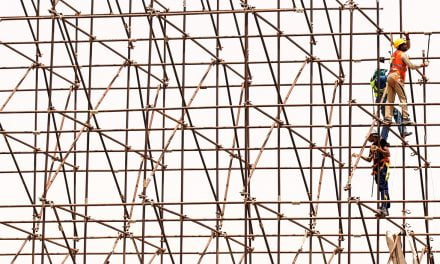Another year of more inclusive mortgage origination rules, another loophole closed.
Beginning October 1, 2023, existing regulations prohibiting unfair, deceptive, and abusive practices (UDAAP) in consumer mortgage financing apply equally to the conduct of originators of commercial mortgage financing in California who are unlicensed operators, as now within the jurisdiction of the Department of Financial Protection and Innovation (DFPI).
Providers of commercial financing include unlicensed persons which provide loans and financial services to:
- small businesses (generating less than $16 million in gross receipts annually);
- nonprofits; and
- family farms. [California Financial Code §22800(d)]
Banks, credit unions and other depository institutions — and those acting pursuant to a California Finance Law (CFL) license granted by the DFPI — are exempt. [Fin C §90002]
DRE licensees acting under their license are not within the jurisdiction of the DFPI and are not directy affected by these regulations. That said, they, by their licensing with the DRE, already are required to behave by avoiding any unfair practices in everything they do — honest, they must be.
Previously, UDAAP regulations applied only to originators of consumer financing — and this is still true in all other U.S. states.
UDAAP rulemaking authority was granted by congress to the Consumer Financial Protection Bureau (CFPB) in 2010 by the Dodd Frank Wall Street Reform and Consumer Protection Act.
Here in California, the DFPI possesses rulemaking authority over UDAAPs committed by providers of financial products and services not acting under a DRE license or who are exempt, as granted by the California Consumer Financial Protection Law (CCFPL).
Unfair practices
An unfair practice is defined as mortgage originator practices:
- causing significant harm to mortgage borrowers;
- unable to be avoided by mortgage borrowers; and
- outweighing any benefits to mortgage borrowers delivered by the practice. [CFPB UDAAP Manual V.2]
For example, consider a mortgage holder or their servicer which repeatedly refuses to release mortgage liens after homeowners have fully paid off their mortgages. This practice:
- causes significant financial harm to property owners;
- is unavoidable by the borrowers affected; and
- delivers no benefit which outweighs the harm.
Thus, the mortgage originator is committing an unfair practice and is subject to enforcement action by the CFPB and Federal Trade Commission (FTC).
Related video:
Mortgage concepts: MLO telemarketing, deception and FTC regs
Deceptive practices
A deceptive act or practice exists in mortgage origination activities when:
- the mortgage originator’s representation, omission or action is likely to mislead or actually misleads the borrower;
- the borrower’s interpretation of the originator’s action is reasonable; and
- the misleading representation, omission or action is material, meaning it:
- is important to the borrower; and
- likely impacts the borrower’s choice or conduct regarding the mortgage lender’s service or product.
For example, consider a mortgage loan broker who advertises a “3.5% fixed payment 30-year loan.” Seeing this advertisement, a reasonable borrower will assume this means the broker is offering a 30-year fixed rate mortgage (FRM) at 3.5%.
However, the broker actually offers borrowers adjustable rate mortgages (ARMs) with options to pay different amounts. Further, at the offered payment schedules, the borrower will be trapped with negative amortization — paying less each month than the interest accrued, leading to an increase in principal owed and the compounding of interest with each passing month.
In this real world example, these misleading and damaging advertisements resulted in the FTC pursuing the mortgage loan broker for deceptive practices.
Related article:
Unlicensed finance company president found guilty of operating mortgage fraud scheme
Abusive practices
An abusive practice by a mortgage loan originator:
- materially interferes with a borrower’s ability to understand the terms of the originator’s financial product or service; or
- takes unreasonable advantage of the borrower’s:
- lack of understanding;
- inability to protect their interests; or
- reasonable reliance on the mortgage lender to act in the borrower’s interest.
For example, consider scammers in equity theft schemes who locate foreclosed, distressed or abandoned properties (or buyers) using information in the public records of the County Recorder’s office. They then purchase the properties using straw buyers. The straw buyers fraudulently state that their intentions are to occupy the property as their primary residence.
The scammers then recruit vulnerable homebuyers to “purchase” the properties from the straw buyers with no exchange of money. After the homebuyers occupy for a 60-day period, the scammers arrange for the homebuyers to obtain home equity conversion mortgages (HECMS, also call HELOCS), using inflated appraisals. Thus, the homebuyer is able to borrow a large lump sum of cash based on their inflated equity. The scammers then take the cash, and abscond.
This equity theft scheme was common in 2008-2009 during the Great Recession, when foreclosure sales were at their height. The scheme will likely reappear as we exist the recession of the mid 2020s and property prices quickly move upward as homebuyers flood back into the market.
Related article:
Annual reporting for commercial mortgage originators
Annual reporting is mandatory for every CFL licensee, even when no business was conducted during the year. Filing the report avoids license revocation, and when revoked, the CFL licensee cannot reapply for the license for one year. [Fin C §22159; Calif. Government Code §11522]
In addition, unlicensed commercial financing mortgage lenders are now required to annually report the cost of their financing products to the DFPI.
The first annual report required to be filed under these regulations will cover 2024 financing activity, due on or before March 15, 2025.
Have you witnessed UDAAP violations? File a complaint with the DFPI online.















thanks for this infor